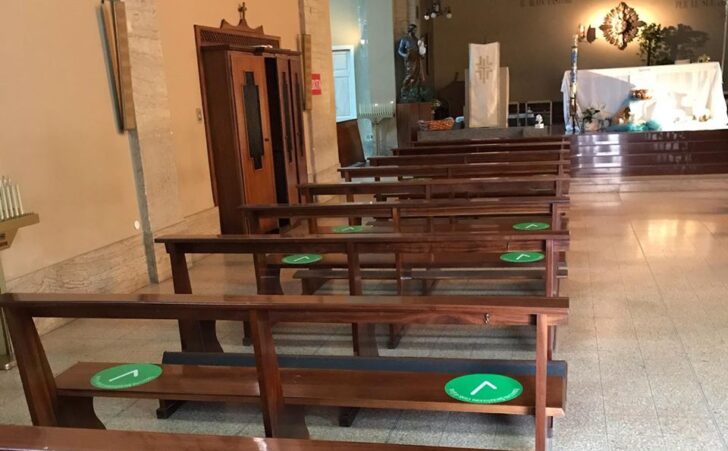During the Covid-19 pandemic, people were barred in many countries from attending religious worship for long periods, and nowhere more so than in Ireland. When they were not barred, severe restrictions were put on the numbers who could attend. But strictly from a public health perspective, was it worth it? An important new study suggest it was not, and the restrictions may have done more public health harm than good.
The research, just published in the European Economic Review is based on a nationally representative sample of over 100,000 responses from 52,459 individuals in the United States. It was carried out during the period from March 2020 to May 2021, when most American States limited the number who could attend a house of worship.
A crucial finding of the study is that the severe restrictions on religious worship do not seem to have slowed the spread of the virus.
It says: “there is no statistically or economically significant association between restrictions on houses of worship and either COVID-19 infections or deaths regardless of how restrictions are measured”. (p. 12)
The article concludes that “there is almost no evidence that the restrictions had a positive effect on public health, consistent with a growing body of evidence that has evaluated the launch of State quarantine policies.” (p. 12)
But the restrictions or ban on public worship did harm the mental health of some worshippers.
The author focuses on two variables: current life satisfaction and self-isolation.
The study confirmed that religious people have higher level of current life satisfaction overall, compared to the rest of the population. This is partly achieved by being part of a religious community. Therefore, it is no surprise that is also found a “strong negative association between state restrictions and current life satisfaction, particularly for religious adherents.” (p. 6).
If one of the main sources of their wellbeing was removed, how could it be otherwise?
The author notes that going to a church, or attending any other religious venue, offers people the opportunity to forge relationships and grow stronger in their faith. The survey established that the restrictions had “a disproportionate impact on self-isolation among religious adherents.” (p. 7)
Self-isolation among religious people increased by more than among their non-religious counterparts. This is one of the reasons why their well-being suffered more as a result of the pandemic.
The decline in well-being was stronger in Catholic than in Protestant congregations, and non-existent among Mormons, who are concentrated in Utah where no significant restrictions were put into place.
The main result of the study is that “religious adherents experienced systematically lower levels of well-being and isolation following the adoption of such restrictions.” (p. 11)
The study focuses on the United States only. It would be interesting to see such research extended to other countries, particularly to Ireland that had the longest period of worship restrictions in Europe.
















